Mahama Under Pressure: Ghana's Galamsey Battle Reaches Boiling Point Amid Calls for Emergency Powers!
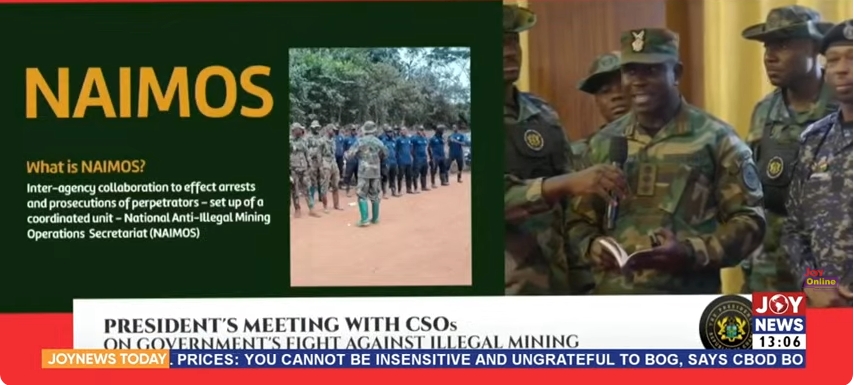
Ghana is grappling with a severe environmental crisis caused by illegal mining, widely known as “galamsey,” which threatens the nation's life-support systems. Civil Society Organisations (CSOs) have labeled the situation an “ecocide,” citing alarming data from a Mercury and Heavy Metals Impact Assessment by Pure Earth and the Environmental Protection Agency (EPA). Reports confirm widespread contamination of water, soil, and food systems with toxic metals like mercury and arsenic. For instance, mercury levels in Konongo Zongo soils reached 56.4 ppm, 560% above safety guidelines, while arsenic in Konongo Odumase water samples was 330 times the national standard. These findings are linked to rising health issues, including kidney disorders in children, miscarriages, and developmental risks, alongside the loss of over 1.2 million hectares of farmland, displacement of 500,000 farmers, and collapse of water treatment facilities. CSOs, including the Media Coalition Against Galamsey and A Rocha Ghana, have urged President John Dramani Mahama to take immediate, decisive action, warning that inaction would amount to complicity.
President John Dramani Mahama has reaffirmed his strong commitment to combating galamsey, assuring CSOs and the public of his government’s political will to end the environmental destruction. He acknowledged Ghana's long history with mining, noting that traditional practices with rudimentary tools posed minimal environmental risk. The challenge, he explained, escalated with the formalization of small-scale mining during the PNDC era, leading to the deployment of heavy earth-moving equipment like excavators. Mr. Mahama stressed that collective effort, sustained advocacy, and public pressure are crucial to winning this fight, inviting criticism and continuous engagement from CSOs.
To tackle the menace, the National Inter-Agency Taskforce on Illegal Mining (NAIMOS) is adopting a tougher, comprehensive posture. Colonel Dominic Buah, Head of Operations for NAIMOS, outlined plans for around-the-clock patrols, drones, and new reporting lines. The country has been zoned into seven illegal mining regions, further divided into 21 sectors, with hundreds of trained troops deployed 24/7 to sensitive areas. NAIMOS aims for a continuous presence at hotspots, tighter surveillance, and promises ruthless treatment for offenders, whom Colonel Buah referred to as “environmental terrorists.” The task force will target vulnerable points, including water bodies, forest reserves, roads, railways, and foreign perpetrators, while ensuring legal miners complying with regulations still have access to designated, sustainable areas. A 24-hour toll-free line for public reporting and collaboration with the National Signal Bureau for drone technology will bolster the campaign. Colonel Buah also issued a stern warning to financiers and organizers of galamsey, declaring them “prime enemies of the state” with no room to escape.
The President addressed the contentious issue of declaring a state of emergency in mining communities. While he possesses the constitutional power, he stated that the National Security Council currently believes the fight can be won through alternative strategies without such a drastic measure, which the Managing Director of Ghana Water Company Limited (GWCL), Mutawakilu Adam, also opposed. Mr. Adam argued that a state of emergency could disrupt livelihoods and local economies, advocating instead for sustained political will. However, President Mahama assured that he would not hesitate to declare an emergency if advised otherwise by the Security Council. He noted that security forces are currently overstretched, engaged in various national security issues from chieftaincy disputes to border protection. NAIMOS, a combined force of police, army, and national security, aims to address this, with optimism for additional troops from winding down peacekeeping missions.
Specific government actions include stringent regulations on excavators. President Mahama warned shipping agencies against importing excavators without required permits, noting a significant backlog at ports previously due to poor enforcement. Reforms now mandate DVLA registration, clear ownership records, and the installation of trackers to monitor excavator movement and use. This aims to hold owners accountable if their machines are found in illegal mining zones, while acknowledging their legitimate use by contractors.
Stakeholders have also called for broader accountability and leadership. GWCL's Mutawakilu Adam emphasized the critical role of chiefs and traditional leaders, stating that illegal mining cannot occur without some level of engagement with them. He urged chiefs to support government efforts, warning of an impending water crisis if pollution continues. The Catholic Bishops’ Conference and other CSOs have pressed President Mahama for stronger leadership, demanding visible prosecution of “kingpins,” clear benchmarks for a state of emergency, measurable performance indicators for local authorities, protection for anti-galamsey activists, confiscation of illegally mined lands, investigations into chiefs' roles, and an end to deportation of foreign suspects in favor of full prosecution under Ghanaian law. They also called for monthly public reports on environmental conditions. President Mahama has encouraged CSOs to maintain their advocacy and pressure, acknowledging their role in holding the government accountable and ensuring transparency in the ongoing campaign to protect Ghana’s natural heritage for future generations.
Recommended Articles
Mining Mogul Wontumi Denied Bail in Illegal Mining Case, Faces New Charges
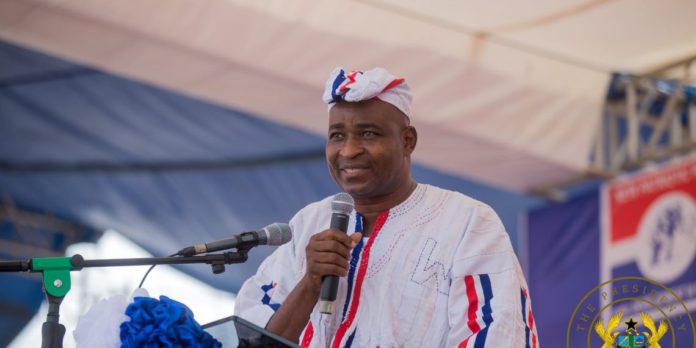
Ashanti Regional NPP Chairman, Bernard Antwi Boasiako, known as Chairman Wontumi, is facing seven new charges for allege...
Ghana's Galamsey Battle: Citizens Blast Government Over Broken Promises and 'No Hotline' Silence
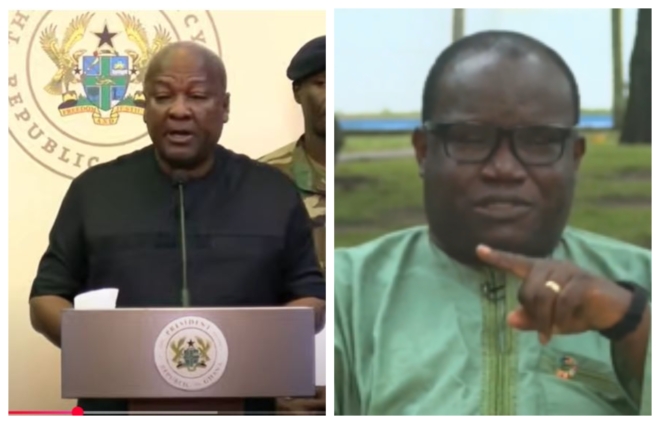
Civil Society Organisations have expressed deep disappointment over the government's handling of illegal mining, critici...
Chairman Wontumi's Wild Ride: From CID Summons to GH₵1m Bail in Galamsey Saga!
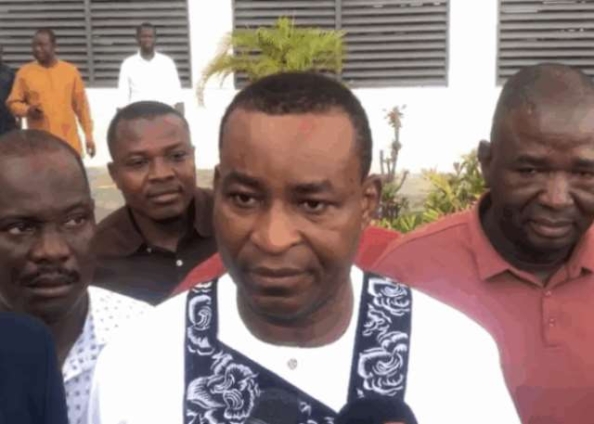
Ashanti Regional NPP Chairman, Bernard Antwi Boasiako (Chairman Wontumi), has been granted bail of GH¢1 million after ap...
Ghana's Silent Killer: Galamsey Toxins Spark Cancer Fears, Urgent Calls for State of Emergency
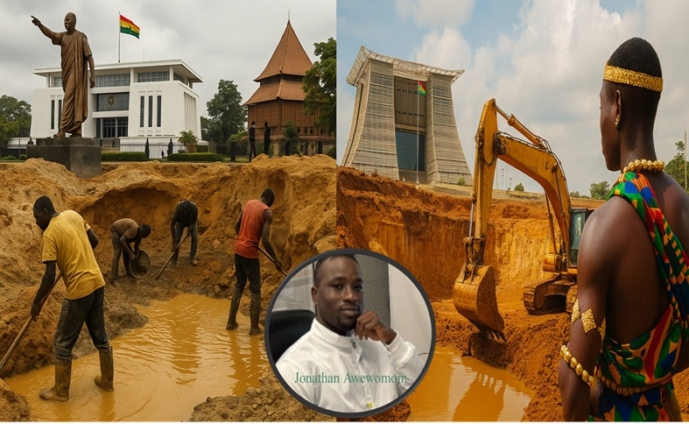
Ghana is grappling with a severe galamsey (illegal mining) crisis, revealing deep institutional complicity and systemic ...
OccupyGhana Issues Urgent Ultimatum: Declare State of Emergency on Galamsey NOW!
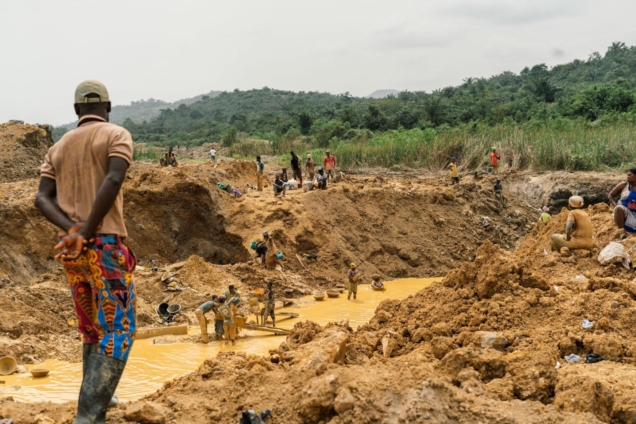
OccupyGhana has urged President John Mahama to declare an immediate state of emergency across Ghana's mining areas due t...
You may also like...
Shocking Claims: Star Striker Victor Osimhen Faces Lifelong Medical Battle!

Turkish football doctor Ahmet Çakar has made serious, unconfirmed claims about Nigerian striker Victor Osimhen's lifelon...
Breaking: Boxing Legend Tyson Fury Confirms Comeback, Return Date Set!

Boxing promoter Frank Warren has confirmed that Tyson Fury is planning a return to the ring next year, despite his earli...
Jared Leto's 'Tron: Ares' Ignites Furious Debate: A Sci-Fi Masterpiece or a Buggy Disaster?

Disney's latest attempt to revitalize the "Tron" franchise, "Tron: Ares," aims to simplify its narrative while retaining...
Michael Mann's 'Heat 2' Officially Ignites: Blockbuster Sequel Finds New Home at Amazon MGM!

Michael Mann's long-awaited "Heat 2" is officially moving forward, finding a new studio home at Amazon MGM-owned United ...
Diddy's Pardon Plea Ignites Firestorm: 50 Cent Slams Trump Confirmation

Sean "Diddy" Combs' recent 50-month prison sentencing for federal prostitution law violations has taken a new turn with ...
Zach Bryan's ICE Lyrics Spark White House Backlash: 'Americans Disagree'

Zach Bryan has ignited a political firestorm with a snippet of an unreleased song critical of ICE, drawing swift condemn...
J.Lo & Ben Affleck: Hollywood's Power Couple Lights Up Red Carpet Once More

Jennifer Lopez and Ben Affleck reunited on the red carpet for the New York City premiere of 'Kiss of the Spider Woman,' ...
One Direction Star Louis Tomlinson's Raw, Emotional Farewell to Liam Payne

Louis Tomlinson has opened up about the profound grief following the tragic death of his friend and former One Direction...